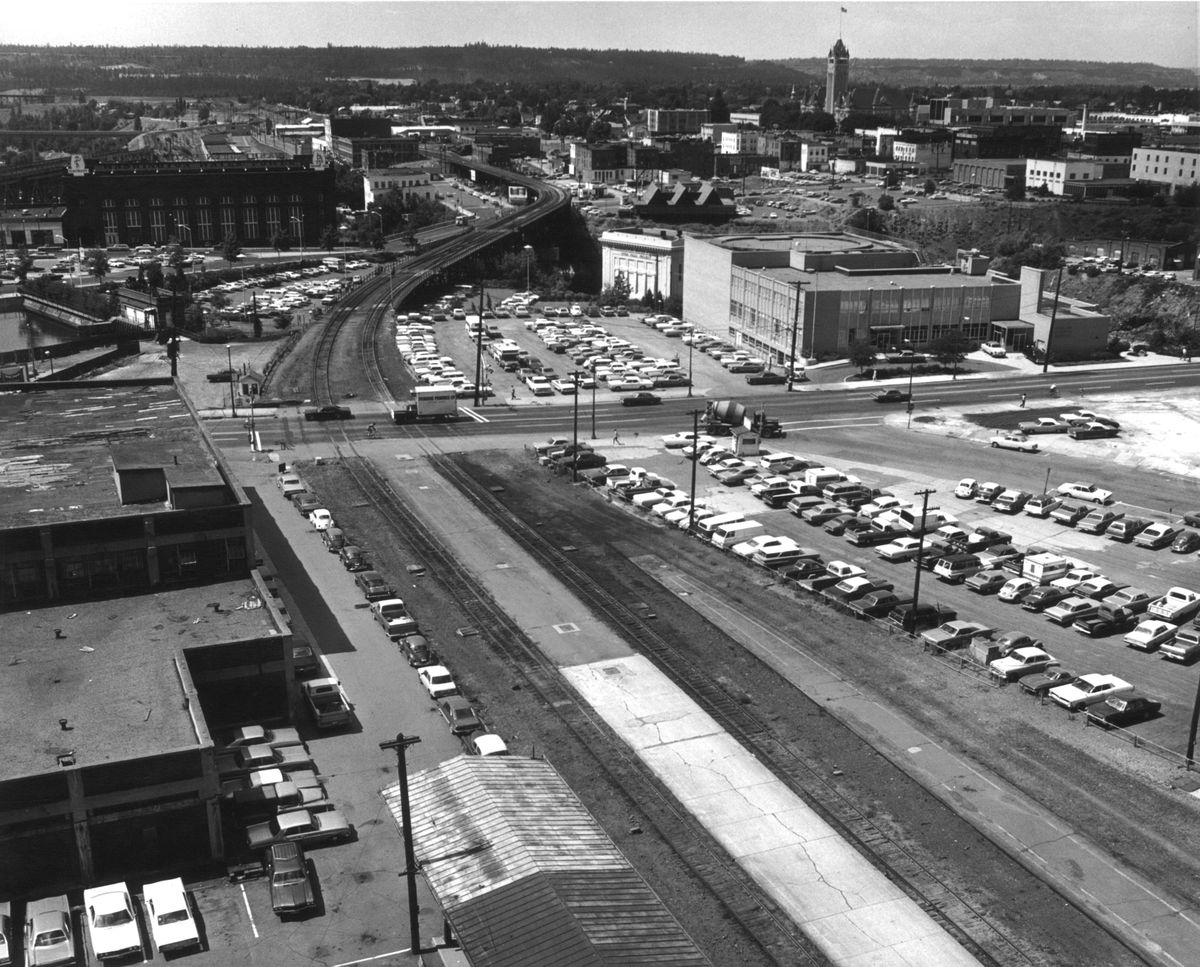Then and Now: Railroad tracks on Havermale Island

One of the biggest changes to the downtown waterfront was the removal of the rails.
In the 1960s, city boosters began to discuss holding a World’s Fair beside the falls in Spokane. And one of the biggest roadblocks was the tangle of steel rails that snaked across Havermale Island and along the shore of the river.
The railroads had carried passengers and freight through town since the rails arrived in 1881, but now organizer King Cole and Spokane Unlimited saw the dingy rail yards and aged depots as a visual blight on the scenic Spokane River. They needed the railroads to consolidate their yard operations outside the downtown core and combine the traffic onto the raised viaduct four blocks to the south, then donate riverside land to the city.
There was no money to buy the land. Plus, four railroads stood in the way: the Great Northern, the Northern Pacific, the Union Pacific and the Chicago Milwaukee. The GN merged with the NP to become Burlington Northern in 1970 and agreed to consolidate, but organizers needed to speed up their timeline. But the UP and Milwaukee were more stubborn. They had multiple lanes of elevated tracks beside the Union Depot on what is now Spokane Falls Boulevard.
City fathers flew to various railroad headquarters, hat in hand, with empty wallets, hoping to appeal to the railroad executives. Pressure came from organizers, the city, business interests and shippers who used the rails.
Historian William Youngs tells the story in his book “The Fair and the Falls,” revealing that the railroads capitulated after many sensitive negotiations involving complex land deals and contracts and guarantees. The city even gave the 13th green at Indian Canyon Golf Course to the Northern Pacific so the track, curving northwest from the Latah Creek Bridge, could pass overhead. Between 1971 and 1973, tracks were torn up, depots and trestles torn down and the waterfront remade. An Associated Press story from April 1974 said “Expo ’74 is stubbornly succeeding. Its organizers think the fair and the city have something to offer the nation and world. If nothing else, it has rekindled the spirit of Spokane.”